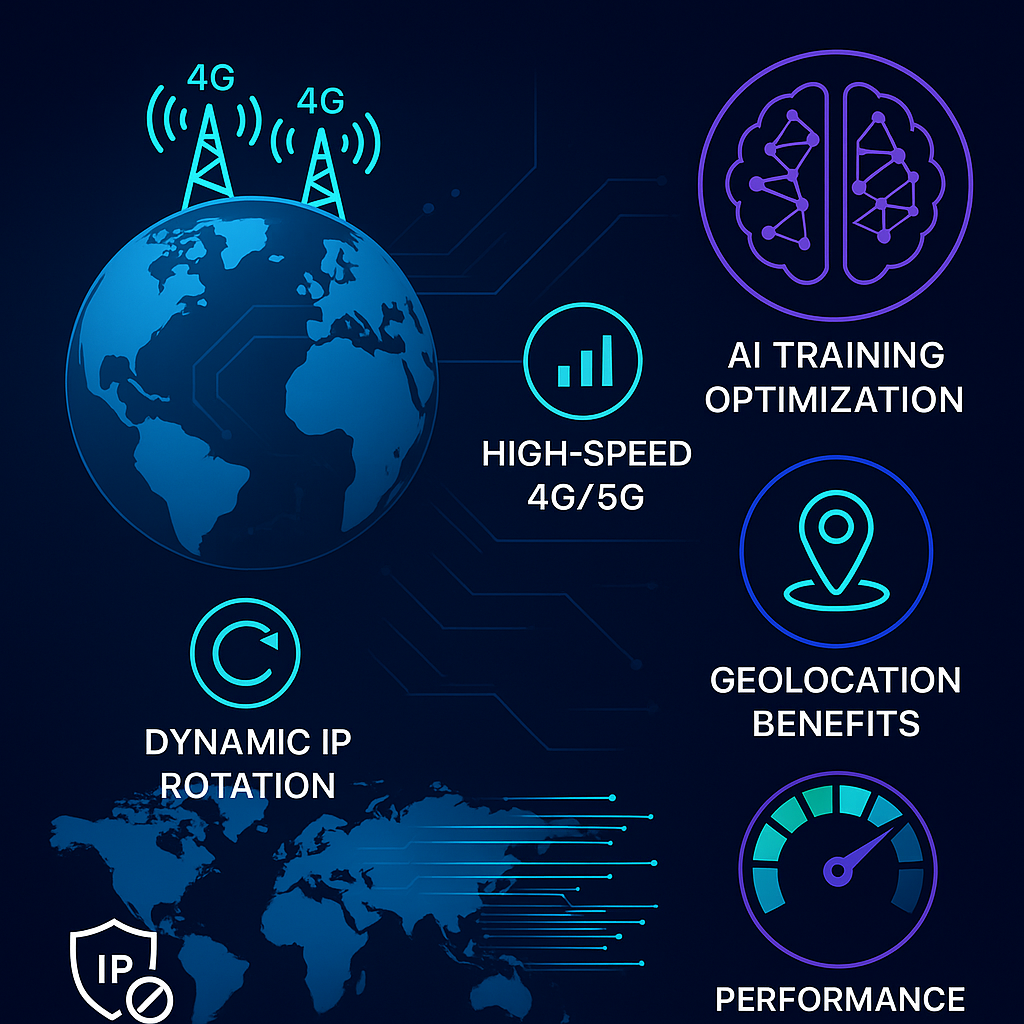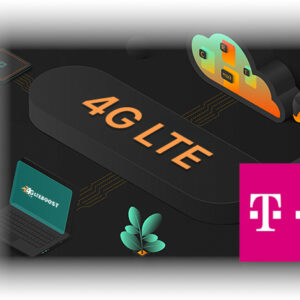
4G Proxies for LLMs & Scraping
4G mobile proxies have emerged as a powerful tool for enhancing Large Language Model (LLM) training, offering high-speed connections, dynamic IP rotation, and geolocation flexibility. These proxies enable AI researchers to access diverse global datasets, mitigate biases, and improve the overall quality and performance of LLMs while maintaining privacy and bypassing restrictions.
Optimizing LLMs with 4G Proxies
4G proxies offer unique advantages for optimizing Large Language Models (LLMs) during training and evaluation. By leveraging proxy tasks, researchers can predict emergent abilities in LLMs during early-stage training, enabling more efficient optimization of model configurations.
This approach allows for cost-effective evaluation of complex capabilities before they fully emerge, potentially accelerating the development of advanced LLMs. Additionally, 4G proxies provide geographical flexibility, allowing researchers to access diverse datasets and test LLM performance across different regions, enhancing the models’ global applicability and reducing bias.
Geolocation Benefits in AI Training
Geolocation technology offers significant benefits for AI training, particularly in enhancing the contextual understanding and global applicability of Large Language Models (LLMs). By incorporating geolocation data, LLMs can generate more accurate and culturally relevant responses, improving their performance across diverse geographical contexts.
This approach allows for the creation of location-aware AI systems that can adapt their outputs based on regional nuances, linguistic variations, and local knowledge:
- Enables personalized learning experiences by tailoring content to users’ locations
- Improves data collection for training by accessing region-specific information
- Enhances model evaluation by testing performance across different geographical areas
- Facilitates the development of more globally inclusive and culturally sensitive AI systems
Bypassing IP Blocks for Data
Bypassing IP blocks is crucial for accessing data without interruptions, especially in large-scale web scraping or AI training projects. Several strategies can effectively circumvent these restrictions:
- Proxy Servers: Acting as intermediaries, proxies mask your real IP address by routing traffic through their servers. Rotating proxies, particularly residential or mobile ones, are highly effective as they use real devices and dynamic IPs, making detection difficult.
- VPNs: Virtual Private Networks encrypt your traffic and assign a new IP address, enabling access to blocked content. While VPNs are reliable for immediate debugging, proxies often provide better scalability for extensive data collection.
- IP Rotation: Regularly changing IP addresses prevents detection during repetitive requests. Mobile proxies excel in this area by offering automatic IP rotation through 4G or 5G networks, ensuring uninterrupted access.
- Clearing Cookies and Cache: Removing stored browser data can prevent websites from recognizing and blocking your device based on past activity.
- User-Agent Spoofing: Modifying the user-agent string in requests mimics different browsers or devices, reducing the likelihood of being flagged as a bot.
Combining these methods ensures robust access to data while minimizing disruptions caused by IP bans.



